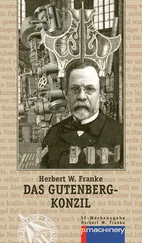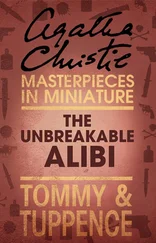“Fust swears he took the teat right at the fire.” Gutenberg came toward them, lacing his own apron. “Though I would wager it has been a while.”
“It isn’t something you forget,” said Peter.
“I’ll be the judge of that. Let’s see those hands.” The master took each by the wrist and turned them. Peter’s right hand had a callus on each fingertip, the middle finger a thick rusty oval. His palms, though, were as pink as baby Henchin’s cheeks.
“Sweet Jesus.” Gutenberg looked up, lips coy. “The last time I saw skin this soft—” He rolled his eyes. The old smith sniggered; Konrad, the big redhead, laughed and lumbered toward the press. Peter glanced at Keffer and caught his eye. By dint of twitches and squints, the journeyman conveyed the message that this master was as rabid as he seemed. With butcher’s skill, the man probed forcefully at the thick joints of Peter’s thumbs, then dropped them without warning. “You’d better know right now. I haven’t got much use for fancy hands.”
Keffer was the only one to show the slightest friendliness. He made a point of shaking Peter’s hand as they were suiting up to face the flames. Thank God, he seemed to hold no grudge for what the scribe had said the day before.
“The last face I had thought to see,” the goldsmith said and grinned. Back at Jakob’s shop he’d been a frisky lad without the slightest whisper of ambition. Half the time they’d played at divination with the drops of lead that landed in the water pot. Now he was huge, surmounted by a yellow beard and curls, his neck and shoulders thick and muscled as an ox.
“And me.”
“I thought you’d up and gone.”
“Not far enough to slip the Fusts.”
There was a flicker of surprise in Keffer’s light blue eyes. “At least you saw the world,” he said, and pulled the scarf above his lips and nose.
“And you have made the grade.” The journeyman just nodded and handed Peter his own scarf. It must have been six years since they had toiled together. Strange, that after his four years apprenticing Keffer had done his wander years right here, and not gone out to seek his fortune. But maybe he had found a girl. He’d always been quite the magnet, with those honey-colored curls.
Their master stood apart, bent over something at his desk. “Best watch your back,” said Keffer underneath his breath. Peter nodded, warmed; he could do worse for allies. The journeyman was just sweeping the jumbled letters from the workbench on a tray and moving it to the side to make a space for casting when Gutenberg whirled suddenly, a metal letter in his hand.
“Look at this shit.” He moved toward them with alarming speed. “You know it, damn you, Hans. What smell has shit?”
“It stinks, just like your mouth.” The old gnome wagged his head.
The master’s laugh was a hard bark. “Damn right. Now move your sad bones over here.” Hans gave a loud sigh, peeling off his gloves with exaggerated care. The master waited, eyes hooded, revolving the hunk of metal between his fingers.
When Hans arrived, he thrust it in their faces. Each man could see that it had buckled under pressure: the shank was twisted and the base had splayed. “Unadulterated, stinking shit. How can any smith call sludge like this a metal? No bloody wonder it won’t print.”
He stood there for a moment, almost daring them.
Hans took the twisted hunk and held it right up to his eyes. “I’ll be damned.”
“Not soon enough.” Gutenberg looked balefully around at his small crew. Keffer shifted nervously. “What in God’s name did you put into it?” The master thrust his mug right up to Keffer’s.
“Lead, tin, and copper,” Keffer answered without flinching.
“Body of God,” the master muttered. “Weeks and weeks, and this is all you have to show for it.” He thrust his lips out, pulling at them; his eyes went inward as he stood there thinking. Hans scratched his flaking pate; the others waited.
“Saint Jude, grant me patience,” Gutenberg said at last disgustedly, and raked his hair back with his hand. Impassively, he dropped his arm and coolly, in one long, unbroken motion, swept the heavy tray of letters to the ground. Keffer leapt back, wincing, a hair too slow to dodge the mass of lead. “Try again. I don’t care how you do it, do it right.” Gutenberg curled his tall, spare body toward the older smith. “Don’t make me do it all myself, by damn.”
Hans, absorbed in the examination of the damaged letter, grunted without looking up. “Just let me think.”
The master bared his teeth and stalked away, flinging instructions. The new boy was to smelt. Keffer was to wipe that goddamned smirk off. Hans would scare up some more tin. Konrad better teach that press of his to kiss the letters and not crush them.
Hans put the spoon and basin, pennyweight, and cupel into Peter’s hands. Up close, he wasn’t quite as ancient as he seemed. The leathered folds and burnished pate were just the residue of an eternity spent screwing up his face against the flames. A madman and a midget, yoked bizarrely, Peter thought. He took the vessels and started slowly toward the forge.
“It’s not a blessed sacrament.” Gutenberg’s voice came wheeling at his back. “You’ll move your tail here, boy, or you’ll feel my hand.”
Under the law, the master was his father from the moment Peter entered his employ. In loco parentis: as apprentice, he belonged now to this madman, just as surely as if he’d been born his child. Unless a master beat a poor apprentice senseless, used him sorely, or punished him without due cause, no soul on God’s green earth — not guild, not church, not even his own kin — could intervene.
The man whom Peter served marked out his territory like a wolf: lifting his leg, baring his fangs, establishing who led the pack. There was a canine aspect to him, with his thin lifted lips, the glowing points of amber in his eyes. Keffer told him later the whole episode had been intended to impress on Peter his low place. Gutenberg had spent the day before grousing about the merchant’s son who had been forced on him. Bad enough to have to beg — he had to take the grocer’s spawn as well. He was the kind of man who could not abide being reminded that he depended on another soul in the whole world than his own, anointed self.
The work those first few months was brutal, mindless, and dull, designed to crush the spirit or to breed a craving to rise up and find some other, lower soul to crush. Peter swept and scoured, lit fires that choked the throat and stung the eyes. He rose before dawn to clear the piles of ash; he lay and lit and banked the day’s new fire. And then he weighed the ores and ground them down. When he was finished with these tasks, the master found him others just as rote and stupid: sieving sand to mix with water to a paste inside the mold, cutting heaps of sheepskin into squares that they would use for printing off that Latin grammar.
His thoughts revolved around a single word: escape. There had to be a way — more devious, perhaps, than he would normally have entertained. He did not feel he had a choice: he could not simply take his writing pouch and announce that he was going. His father would feel bound to cut him off and cast him out — pursue him, even, for a breach of contract. The only hope lay in some other work that might release him from this stinking Hades.
Grede told him he should pray for patience. She knocked lightly on his door one night that first week when the household was asleep, saying she had seen his light beneath the door. “You do not rest,” she whispered. How could he? he responded. She sat upon the narrow bed, put her candle down, and frowned.
“What I don’t understand is why he has to drag me into it. An idiot could work that forge.”
Читать дальше












